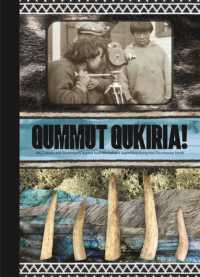Full Description
Corpus linguistics continues to be a vibrant methodology applied across highly diverse fields of research in the language sciences. With the current steep rise in corpus sizes, computational power, statistical literacy and multi-purpose software tools, and inspired by neighbouring disciplines, approaches have diversified to an extent that calls for an intensification of the accompanying critical debate. Bringing together a team of leading experts, this book follows a unique design, comparing advanced methods and approaches current in corpus linguistics, to stimulate reflective evaluation and discussion. Each chapter explores the strengths and weaknesses of different datasets and techniques, presenting a case study and allowing readers to gauge methodological options in practice. Contributions also provide suggestions for further reading, and data and analysis scripts are included in an online appendix. This is an important and timely volume, and will be essential reading for any linguist interested in corpus-linguistic approaches to variation and change.
Contents
List of figures; List of tables; List of contributors; Acknowledgements; Introduction: Comparative Approaches to Data and Methods in Corpus Linguistics Julia Schlüter and Ole Schützler; Part I. Corpus dimensions and the viability of methodological approaches; 1.Comparing standard reference corpora and Google Books Ngrams: Strengths, limitations and synergies in the contrastive study of variable h- in British and American English Lukas Sönning and Julia Schlüter; 2. Comparing approaches to phonological and orthographic corpus formats: Revisiting the Principle of Rhythmic Alternation Sabine Arndt-Lappe and Sebastian Hoffmann; Part II. Selection, calibration and preparation of corpus data; 3. Comparing approaches to (sub-)register variation: The 'press editorials' sections in the British, Canadian and Jamaican components of ICE Fabian Vetter; 4. Comparing baselines for corpus analysis: Research into the get-passive in speech and writing Sean Wallis and Seth Mehl; 5. Comparing study designs and down-sampling strategies in corpus analysis: The importance of speaker metadata in the BNCs of 1994 and 2014 Lukas Sönning and Manfred Krug; Part III. Perspectives on multifactorial methods; 6. Comparing generalised linear mixed-effects models, generalised linear mixed-effects model trees and random forests: Filled and unfilled pauses in varieties of English Tobias Bernaisch; 7. Comparing logistic regression, multinomial regression, classification trees and random forests applied to ternary variables: Three-way genitive variation in English Matthew Fahy, Jesse Egbert, Benedikt Szmrecsanyi and Douglas Biber; 8. Comparing Bayesian and frequentist models of language variation: The case of help + (to‑)infinitive Natalia Levshina; 9. Comparing methods for the evaluation of clusters in multidimensional analyses: Concessive constructions in varieties of English Ole Schützler; Part IV. Applications of classification-based approaches; 10. Comparing corpus-driven and corpus-based approaches to diachronic variation: Grammatical changes in Late Modern and Present-Day English Gerold Schneider; 11. Comparing annotation types and n-gram sizes: A case study of the German modal particles ja and doch and their English reflexes Volker Gast; Index.








